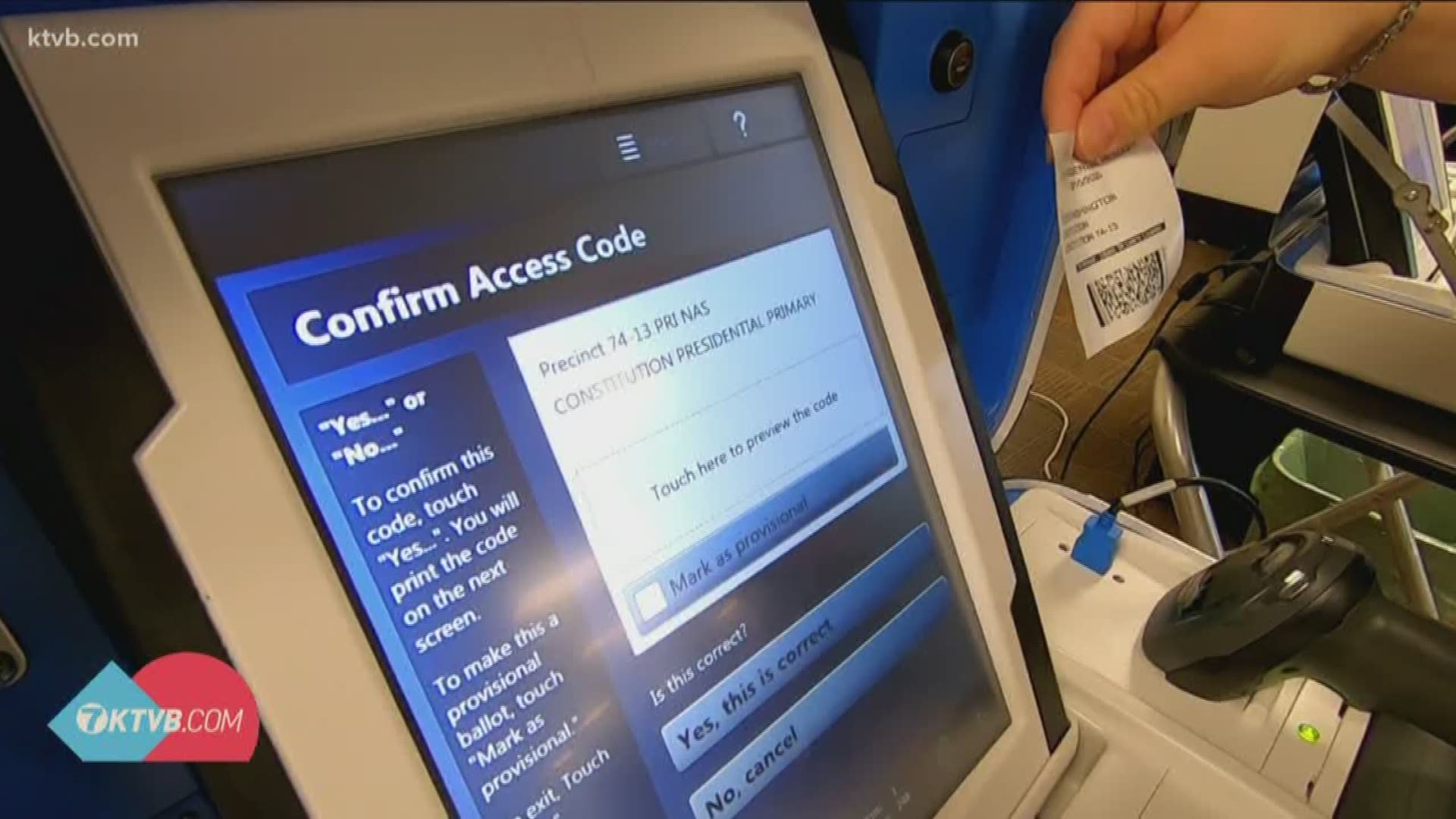CALDWELL, Idaho — On Tuesday, Idaho will hold primary elections.
If you plan to vote in Canyon County, the process this time around will look a little different.
A new high-tech system is in place, and Canyon County Clerk Chris Yamamoto says it's the only place in Idaho you'll find it.
"The main reason we went with this system is to ensure that the voter gets the correct ballot,” Yamamoto said.
Getting it right is always the goal, but during a primary election there are different ballots depending on your political affiliation.
In Idaho for example, you need to be a registered Republican to vote in that party's primary. Democrats welcome registered Democrats as well as unaffiliated voters.
Many voters in Canyon County will also see school funding requests on their ballots.
Yamamoto says this new process should make things easier.
Here's how it works:
First, voters check in with a poll worker upon arriving at the polling place.
"They put their driver’s license in the slot, and it will read the barcode, and it's done, they are in the system," Yamamoto said.
Depending on your party registration, you'll be asked what ballot you want.
From there, you'll get a ballot ticket with a number, which a poll worker will scan to verify it's you, using a unique code.
The machine will verify if the right code was entered, and then, you place your ballot into the machine and vote on the touch screen.
"These machines fill out the ballot, so there is no more filling in an oval with a pencil," Yamamoto said.
When you are done, the machine will print out your ballot, and then a poll worker will help you submit it.
"We print those ballots right on the spot, so it's going to be saving money," Yamamoto said.
It also saves a lot of time. In 2016, there were 2,000 improperly marked ballots. Each of those ballots had to be evaluated.
"It takes a minute and a half to reconcile those, and that is why we were here all night and into the next day," Yamamoto said.
This system avoids that, but poll workers know this new system may throw some people off.
"I think they are a little bit intimidated by the whole process, but I think once they get accustomed to that, it's going to go really well," Yamamoto said.
Idaho’s primary election is coming up Tuesday, March 10. To read up on the issues, check out our voter guide.
Watch more of The 208:
See all of the latest episodes of KTVB's newest show in our YouTube playlist:
Join 'The 208' conversation:
- Text us at (208) 321-5614
- E-mail us at the208@ktvb.com
- Join our The 208 Facebook group: https://www.facebook.com/groups/the208KTVB/
- Follow us on Twitter: @the208KTVB or tweet #the208 and #SoIdaho
- Follow us on Instagram: @the208KTVB
- Bookmark our landing page: /the-208
- And we also turn each episode into a podcast on Spotify or Podbeam
- Still reading this list? We're on YouTube, too:

